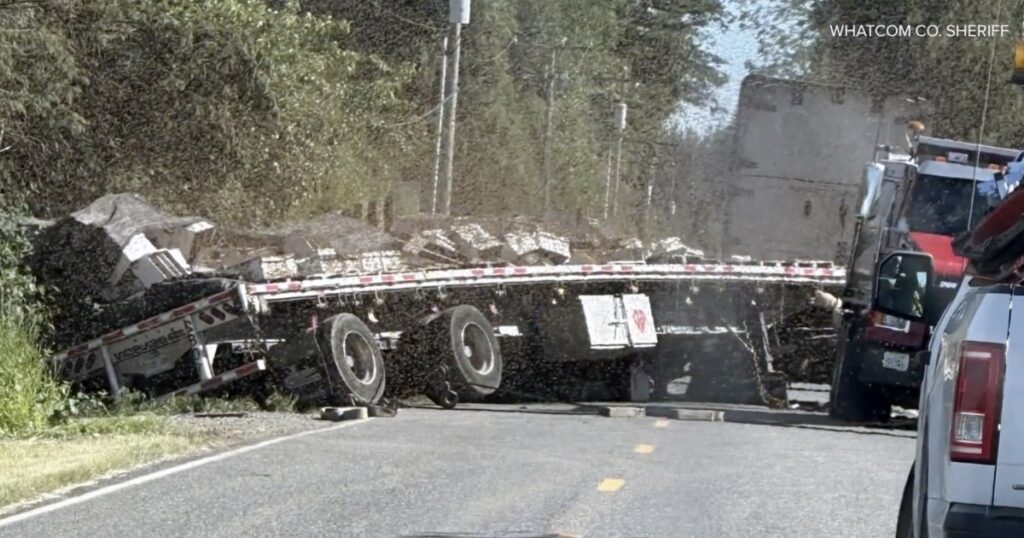
A semi-truck carrying 250 million bees and their hives overturned on a Washington state roadway on Friday, unleashing an ominous cloud of unhappily buzzing insects.
But more than two dozen volunteer beekeepers from the region of Whatcom County, snuggled along the U.S.-Canada border, may have saved the day, the Whatcom County Sheriff’s Office said.
They helped restore hives that had become dislodged in the crash, it said.
“Hive boxes from the overturned truck were recovered, restored and returned to use,” the sheriff’s office said in an update Friday afternoon. “By morning, most bees should have returned to their hives and those responsible for their delivery will be in charge.”
The workday started with more uncertainty than optimism, as the crash shut down a roadway and inspired the sheriff’s office to warn residents it could take a few days to corral the escapees.
“The plan is to allow the bees to re-hive and find their queen bee,” the office said in an earlier statement. “That should occur within the next 24-48 hours. The goal is to save as many of the bees as possible.”
Katie Buckley, the pollinator health coordinator for the Washington State Department of Agriculture, indicated many of the bees will not only survive but reconnect with their hives and travel on to their destination.
“Bees are actually surprisingly sturdy,” she told NBC affiliate KING of Seattle.
People should still avoid the bees, and the area of the overturned semi-truck, because they’re probably unhappy about being ejected, even if separation from their hives is temporary.
“They’re also probably having a bad day,” she said.
The sheriff’s office, meanwhile, said the roadway could reopen Saturday morning, when the insects’ owners will most likely take over, according to a statement.
KING said it was working to determine where the bees were headed. The sheriff’s office didn’t say. The cause of the crash was not available.
The sheriff’s office thanked “the wonderful community of beekeepers,” saying that its members “showed up to help ensure the rescue of millions of pollinating honey bees would be as successful as possible.”
 Latest World Breaking News Online News Portal
Latest World Breaking News Online News Portal







